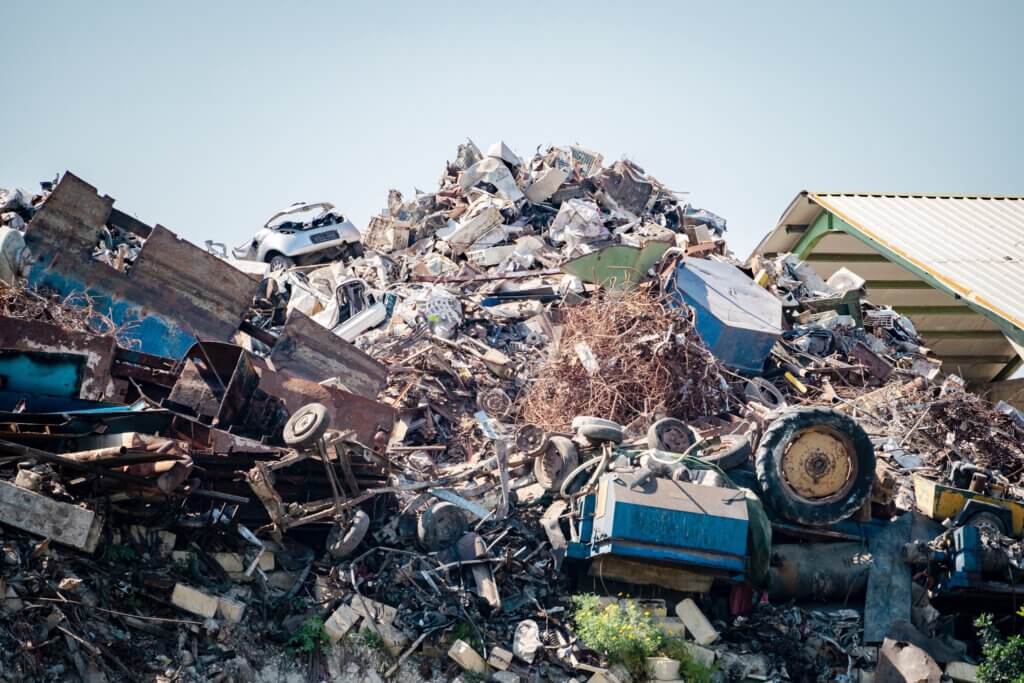
Switzerland often lives in abundance, but where all the waste go? A new guide provides fascinating insights and highlights the country’s limits as well as two special cases.
Switzerland wants to preserve the foundations of life for current and future generations. But that’s not so easy in view of the throwaway society, because where should all the waste go?
Switzerland has a well-developed infrastructure for the collection and treatment of waste from households, industry and commerce, the Federal Office for the Environment (Bafu) explained in a new guide to cross-border waste disposal.
Lack of capacity
For example, mixed combustible waste, sewage sludge, waste from street cleaning and waste to be land-filled are practically all disposed of in Switzerland.
Some other waste, however, treatment facilities are lacking or capacities are insufficient, the report continued. And for example, metals such as copper, aluminum and zinc are recovered from Swiss waste at specialized foreign plants.
Export important
However, Switzerland also needs capacities abroad for the thermal treatment of waste from the remediation of large polluted sites, the Bafu further explained.
The possibility of exporting waste is therefore an important element of Swiss waste management. However, Bafu’s comments show that Switzerland does not live at the expense of others when it comes to waste.
According to the environmental agency, the import of waste is only characterized by cross-border shipments of municipal waste or waste from industry and commerce for incineration in Swiss incineration plants.
Put on the street
Ordinary citizens often don’t think much about all of this. Most of the time in Switzerland they simply put items out on the streets, marking them with “free of charge” and hope that, on the one hand, someone will still have use for the things and, on the other hand, to save themselves the disposal costs.
But, especially for the upcoming Christmas, citizens should also remember the waste problem.
The transboundary movement of waste is regulated by the Basel Convention on the Control of Transboundary Movements of Hazardous Wastes and their Disposal and the OECD Council Decision.
Complete declaration
In principle, shipments may only be carried out with the prior consent of the countries concerned. In the licensing procedure, it must be demonstrated in particular that the waste will be disposed of in an environmentally sound manner and in accordance with the state of the art.
If electrical equipment is exported, it must also be shown that it still functions if it is not declared as waste.
Only certain non-hazardous waste may be shipped across borders for recovery without a permit. All shipments of waste are also documented.
U.S.A. and Liechtenstein
The Swiss waste list corresponds to that of the EU with a few exceptions. And there is another interesting aspect in this context. The U.S.A. is one of the few countries in the world that is not a party to the Basel Convention – but it is a member of the OECD.
And since the OECD Council Decision is an agreement according to Art. 11 of the Basel Convention, the export of waste to the U.S.A. is actually allowed. The same applies to the import of waste from the U.S.A.
However, there is a special case in addition to the U.S.A. Traffic between Switzerland and the Principality of Liechtenstein is not considered to be transboundary traffic due to the customs treaty. For traffic between Liechtenstein and third-party countries, therefore, the Swiss Bafu is the only competent (waste) authority.
Room for improvement
In any case, Switzerland’s biggest problem with regard to waste lies in completely different areas.
As a regular analysis of the composition of household waste shows, biogenic waste and paper make up the largest shares of municipal waste, at 32 and 14 percent respectively.
The population could actually still sort out these components, as the Bafu recently urged. In recent years, Switzerland has achieved numerous successes in recycling, for example. “However, we have not yet reached our goal,” said Bafu Director Katrin Schneeberger in a cautionary tone.
20.12.2022/kut./ena.






